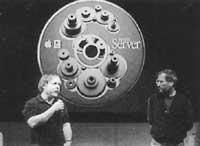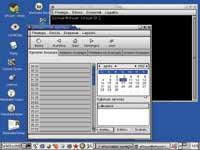Free software: paradise of programmers
2002/07/01 Orobengoa, Olatz - Elhuyar Zientziaren Komunikazioa Iturria: Elhuyar aldizkaria
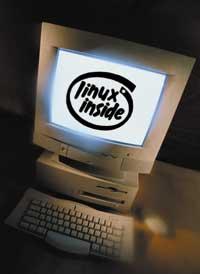
The beginning of this story is in 1984 and Richard M. Its protagonist is the American programmer Stallman. He is considered inventor of free software in the world of programmers.
At that time Stallman worked in a programming company. It was very common among the company's programmers to exchange programs with visible source code to solve possible problems and introduce improvements, and Stallman found that this exchange reported great benefits to the development of programs.
If the exchange network that emerged in the company spread throughout the world, the development of the programs that were to be created and the fluidity of ideas was considered enormous. But it had a big problem: traditional programs hide the source code, because trade is considered secret and nothing can be transformed from that program. According to Stallman, it is possible to limit the flow of ideas. Therefore, Stallman began to build on his own software with visible source code, ie free software.
Free software and Linux
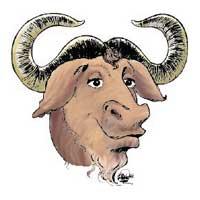
First of all, a totally free operating system based on the Unix operating system began to be built. The project, called GNU, created the Free Software Foundation for the promotion of free software. By unifying the source code that Linus Torvalde called Linux to this operating system, the Linux operating system was created. However, look, the real name is the GNU/Linux operating system, and the source code Linux is only. At present, this operating system has become popular all over the world, mainly due to free software. Anyone can access the program from the Internet and manipulate it in their own way. Fully complies with the definition of free software: it is a program that the user can run, copy, one, iker, modify and improve.
In short, that has been the great success of GNU/Linux. Since the source code of the program is obvious, it can be analyzed all its functioning and adapted to the needs of each of them. In addition, in case there are errors, everyone can solve them and apply new ideas. Since the program is free software, the version of the program that is achieved with future improvements is free, so the rest of GNU/Linux users can take advantage of these improvements and correct possible previous errors and problems. With this you get a very dynamic program, able to overcome the problems of the moment and, as they say, very safe.
All this, logically, from a project started almost twenty years ago. The success of the GNU/Linux operating system has allowed the emergence of new free programs and the movement that drives free software.
Profitability profitability
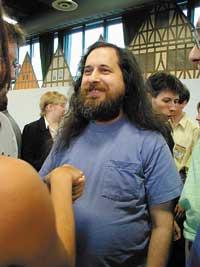
Companies that oppose free software affirm that the movement is against intellectual property and that it can be a great loss of money, since a program that can be obtained free from the Internet does not provide any benefit to the author. However, Stallman himself wants to make it clear that having free software does not mean it is not profitable. Anyone who believes a free program is free to sell this program while remaining free. But who will buy the program if you can download free of Internet? Free software programmers don't make much money on the sale of programs, but they do in specific applications.
Adapting the programs to the needs of companies, you can get money with maintenance services or with the sale of auxiliary materials (manuals, luxury editions). As well as the grants that companies can grant for the development of specific programs.
According to the Foundation, knowing all the benefits and philosophy of free software, more and more companies will be interested in these programs and more money will be invested in the development of free programs.
For more information: www.gnu.org www.fsfeurope.org

Gai honi buruzko eduki gehiago
Elhuyarrek garatutako teknologia



